If you have a single missing tooth, a unitary implant is the best solution for replacing the missing dentition. A partial edentulous ridge (missing tooth) can have negative effects to your oral health in the long-term and therefore should be replaced. The implant provides the support to a dental crown, which is fabricated accordingly to restore esthetics and fits harmoniously to your remaining dentition. This will help you to preserve the bone and healthy adjacent teeth.
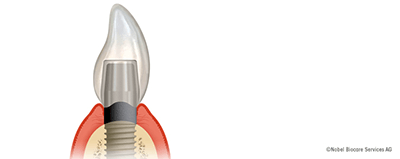
The loss of all teeth or what is also known as complete edentulism is more than just an oral problem. It can lead to psychological as well as physical problems. The inability to chew and ingest food properly so that it can be broken down into nutrients by the body can pose a potential risk to ones health. Bowel problems are common in patients that cannot chew their food properly as the digestion of food begins in the oral cavity. The food needs to be broken down into smaller pieces so it can be easily absorbed. The patient is left having to only eat soft foods and have a more liquid based diet. Psychologically, being in the state of complete edentulism can cause a lot of stress; it directly affects the quality of life and self-esteem of the patient.
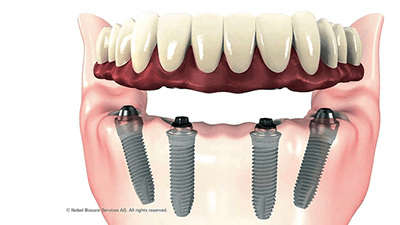
Traditional removable dentures lack the support and stability that implant-retained dentures have. Removable dentures can also be uncomfortable and painful as the soft tissue of the patient is in constant friction during function. Overtime this can lead to inflammation of the gums (denture stomatitis) and also fungal infections (candidiasis).
Malo Dental All-on-4™ Protocol surgical technique and the fixed prosthesis DENTAL Bridge directly addresses this problem. The patient is treated having an implant-retained denture that is fixed (non-removable), has great support and stability from the anchorage of the implants, hygienic and can be easily cleaned and is highly esthetic. The patient will regain their confidence once more and will be able to eat, speak and smile with great pleasure.
A gummy smile is when the patient has an extensive showing of gingival tissue (gums) when smiling. This can be caused by hyperactivity of the smiling muscles, which pulls the lips higher than usual when smiling thus exposing the gums. Short clinical crowns can also cause gummy smiles.

The DENTAL Protocol is able to correct the gummy smile effectively resulting in a more esthetic appearance. This is done during the pre-operative visit, the smile is assessed, intra-oral and extra-oral photographs are taken, CT scans and radiographs are also taken accordingly. The data is analyzed and the treatment is planned accordingly. The bone is re-contoured during the surgical phase with the smile line of the patient taken into consideration. The final result is a highly esthetic smile, exposing just the right amount of gums.
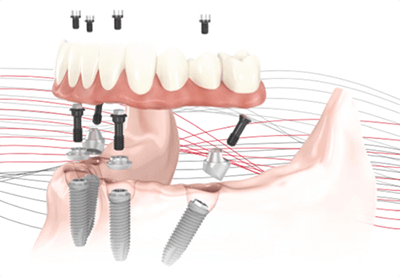
All-on-4® treatment concept, using straight and tilted implants, was developed to provide edentu-lous and soon-to-be edentulous patients full-arch restorations that can function immediately. Two implants are placed vertically in the anterior or front region and two are placed at an angle of up to 45° in the posterior or back region. Using angulated abutments the tilt of the implants can be com-pensated and support a DENTAL bridge.
Only four implants are needed on each jaw to fully reconstruct all the teeth in the mouth and to pro-vide patients with both functions and esthetics.

By tilting the two posterior implants, it allows for better bone support even in cases where there is inadequate bone. This eliminates the need for additional bone augmentation procedures, which can be painful and costly.

The DENTAL Bridge is an all-ceramic bridge that is custom fabricated in the lab. It is sup-ported by the four implants strategically placed in the mouth to allow for even distribution of forces for optimal function. The patient is left with a prosthesis of extremely high esthetics.
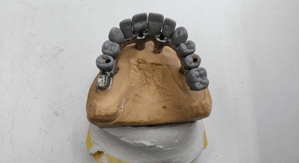
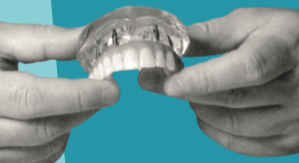
DENTAL CLINIC partnered up with a Swedish company Nobel Biocare® to innovate a new design of implant system that is more versatile than ever before. This allows for more a predictable and successful outcome.
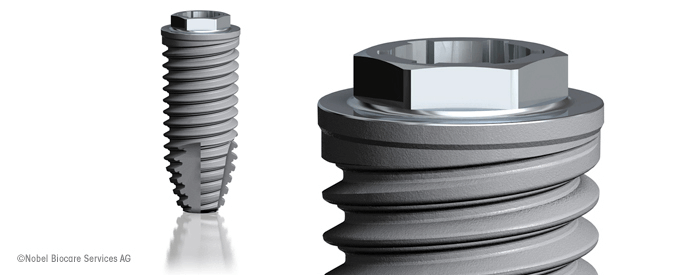
This new implant features a short collar, straight body and a narrow implant apex. It has a micro-textured surface, which is produced by anodic oxidation.
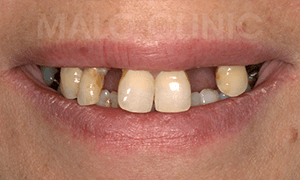
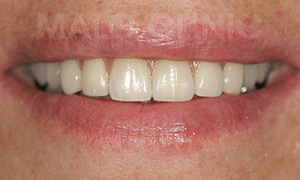
“The clinical survival rate of 98.9% after 1 year of loading shows that this implant design can be used with predictable results in combination with immediate function in various types of bone.”
-Paulo Maló, DDS et.al
The narrow tip in underprepared sites enhances insertion of the implant. It allows for a good me-chanical anchorage of the implant. This makes it suitable for soft bone sites and immediate function protocols.
It has always been challenging in treating patients with minimal amount of bone in the maxilla (upper jaw). There is insufficient bone volume to support traditional implants and this complicates the treatment significantly. The atrophic maxilla has also very poor bone quality and density, there isn't enough primary stability to support an implant. Bangkok Smile Dental Clinic Protocol has mastered a technique known as the Zygoma Implant. This implant is surgically placed into the zygoma (cheek-bone) of the patient which allows for a good primary stability and excellent foundation to fabricate a prosthesis upon. The bone in the zygoma is denser and offers a better anchorage than the bone in the maxilla. Bangkok Smile Dental Clinic Protocol firmly believes in using the right amount of torque while placing the implants to attain immediate loading and function. The patient receives a provisional prosthesis on the day of the surgery itself. This treatment protocol also eliminates the need for bone grafting procedures, which can be costly and contraindicated in patients with diabetes or osteoporosis.
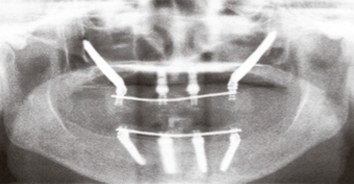
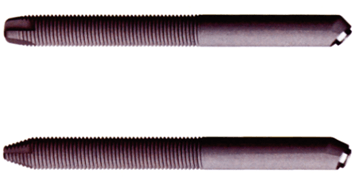
According to Malo P. 2008 et al. , the implant success rates at 1 year are 98.5%. These values are comparable to those of standard implants, which proves that the zygomatic implant can be a good treatment of choice in patients with atrophic maxillae.